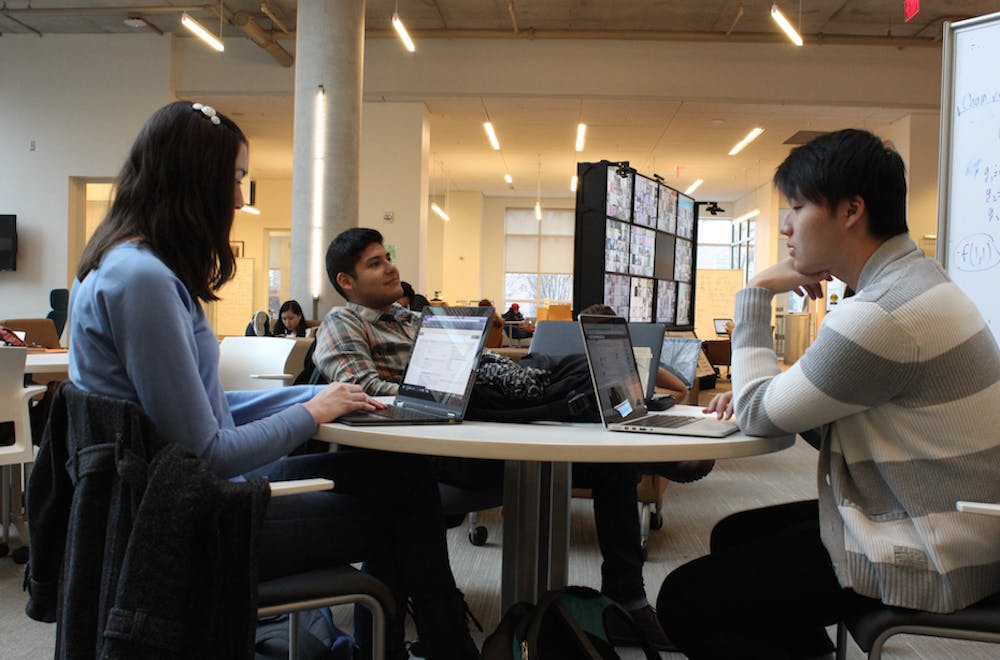
Hopkins is failing its mission statement and failing us as students. The University claims that cultivating “the capacity for life-long learning,” is the core of their mission and, in the words of Daniel Coit Gilman, that the goal of the school is making students “strong, bright, useful and true.” With the current required curricula in engineering majors, creating such students would be nearly impossible.
As a major in mechanical engineering, during my freshman year I was told by my advisor that I shouldn’t take foreign language courses, because they didn’t apply to my major. With a crammed schedule that allowed little to no free time, it would have compromised my mental health to try to become the well-rounded and “useful” student with a “capacity for life-long learning” that the school claims to cultivate. It wasn’t just during that semester, and it’s not just me either.
Engineering students at Hopkins work hard to maintain their sanity and GPAs by sacrificing their humanities courses. Class recommendations for easy-A humanities courses circulated on Facebook and on group chats during class registration last semester. That was disappointing and disheartening to see.
The current curriculum fails to demonstrate the connection between the theoretical material we’re all memorizing and the ways in which it can be used to impact peoples’ lives.
While there is an introductory course in mechanical engineering about the design process and the engineering thought process, there is no such course on the society that those designs will enter. The institution makes no effort to preface an education in engineering with one on the social impact of engineering.

FILE PHOTO
Grinsfelder argues that STEM majors’ schedules don’t allow for a well rounded education.
Faculty seem to view the relationship between innovation and social impact as a one-way street: Engineers design things that humanity needs, and humanity uses them. In a recent course, a professor lamented the fact that people seem to have forgotten how engineering can help them. Yet, how can engineering serve people when engineers fail to see themselves as individuals there to serve the communities they are a part of?
The engineering curriculum needs to emphasize the social aspect and responsibility of students entering the profession. Otherwise, engineers become obsolete. Without people to purchase Henry Ford’s cars, the importance of cost-effective manufacturing would never have become the forefront of mass production and consumerism that came to define the social climate of the United States in the 1950s.
One can argue that Tesla is coming up with ground-breaking technology that may revolutionize energy, but their technology is completely inaccessible to many of the people on this earth. They are inventing beyond the needs of the people that they should be serving, and as a result, they are a moneymaking enterprise rather than an innovative driver of change.
In an interview conducted by the New York Times, Bill Gates brought up one of the current projects being funded by the Bill Gates foundation: inventing a toilet that does not need water piped in to break down waste.
His foundation is pushing for innovation in order to make toilets less costly in arid places, “so that even Indian cities that will never spend $1 billion can have a toilet as good as a Western one.” The current leaps and bounds in innovation that are focused on humanitarian aid and social betterment are rarely talked about in engineering courses.
Students like myself are left with the impression that engineering is a field for people who want to invent their own ideas, insulated from the world around them.
To me, an engineer who invents while disregarding the people they should be serving is as insulated and out of touch with reality as an English scholar studying the obscure usage of pea pods in some 17th-century text that no one has heard of. As a school of higher learning, Hopkins should be actively battling such an apathetic approach to engineering.
The curriculum should be accommodating yet challenging, preparing students in engineering for careers that branch beyond the industry. Not all engineering students will continue on to a Master’s degree or enter the industry.
Just focusing on the technical aspects of the profession will leave students unable to think critically about larger social issues, which is a key aspect of a higher education.
Having required courses that examine the current state of politics, discrimination and inequality in the United States and abroad can do nothing but broaden students’ minds and make them more prepared for the world that they are about to step into.
It’s time that Hopkins recognizes the value in a sense of justice and moral consciousness that extends beyond a lab or classroom and truly works to help students become “life-long learners.”





